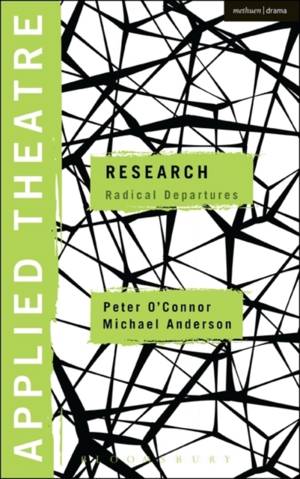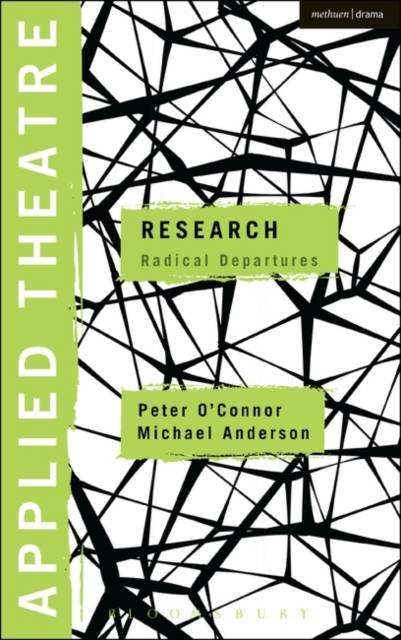
Bedankt voor het vertrouwen het afgelopen jaar! Om jou te bedanken bieden we GRATIS verzending (in België) aan op alles gedurende de hele maand januari.
- Afhalen na 1 uur in een winkel met voorraad
- In januari gratis thuislevering in België
- Ruim aanbod met 7 miljoen producten
Bedankt voor het vertrouwen het afgelopen jaar! Om jou te bedanken bieden we GRATIS verzending (in België) aan op alles gedurende de hele maand januari.
- Afhalen na 1 uur in een winkel met voorraad
- In januari gratis thuislevering in België
- Ruim aanbod met 7 miljoen producten
Zoeken
€ 62,95
+ 125 punten
Uitvoering
Omschrijving
Applied Theatre: Research is the first book to consolidate thinking about applied theatre as research through a thorough investigation of ATAR as a research methodology. It will be an indispensable resource for teachers and researchers in the area.
The first section of the book details the history of the relationship between applied theatre and research, especially in the area of evaluation and impact assessment, and offering an examination of the literature surrounding applied theatre and research. The book then explores how applied theatre as research (ATAR) works as a democratic and pro-social adjunct to community based research and explains its complex relationship to arts informed inquiry, Indigenous research methods and other research epistemologies. The book provides a rationale for this approach focusing on its capacity for reciprocity within communities. The second part of the book provides a series of international case studies of effective practice which detail some of the key approaches in the method and based on work conducted in Australia, New Zealand, Singapore and the South Pacific. The case studies provide a range of cultural contexts for the playing out of various forms of ATAR, and a concluding chapter considers the tensions and the possibilities inherent in ATAR.
This is a groundbreaking book for all researchers who are working with communities who require a method that moves beyond current research practice.
The first section of the book details the history of the relationship between applied theatre and research, especially in the area of evaluation and impact assessment, and offering an examination of the literature surrounding applied theatre and research. The book then explores how applied theatre as research (ATAR) works as a democratic and pro-social adjunct to community based research and explains its complex relationship to arts informed inquiry, Indigenous research methods and other research epistemologies. The book provides a rationale for this approach focusing on its capacity for reciprocity within communities. The second part of the book provides a series of international case studies of effective practice which detail some of the key approaches in the method and based on work conducted in Australia, New Zealand, Singapore and the South Pacific. The case studies provide a range of cultural contexts for the playing out of various forms of ATAR, and a concluding chapter considers the tensions and the possibilities inherent in ATAR.
This is a groundbreaking book for all researchers who are working with communities who require a method that moves beyond current research practice.
Specificaties
Betrokkenen
- Auteur(s):
- Uitgeverij:
Inhoud
- Aantal bladzijden:
- 312
- Taal:
- Engels
- Reeks:
Eigenschappen
- Productcode (EAN):
- 9781472509611
- Verschijningsdatum:
- 23/04/2015
- Uitvoering:
- Paperback
- Formaat:
- Trade paperback (VS)
- Afmetingen:
- 137 mm x 213 mm
- Gewicht:
- 430 g

Alleen bij Standaard Boekhandel
+ 125 punten op je klantenkaart van Standaard Boekhandel
Beoordelingen
We publiceren alleen reviews die voldoen aan de voorwaarden voor reviews. Bekijk onze voorwaarden voor reviews.









